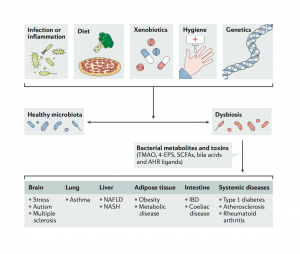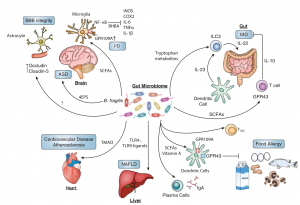NLRP6: A Multifaceted Innate Immune Sensor
NLRP6, a member of the nucleotide-binding domain, leucine-rich repeat-containing (NLR) innate immune receptor family, regulates inflammation and host defense against microorganisms. Similar to other NLRs, NLRP6 not only participates in inflammasome formation, but is also involved in nuclear factor-κB (NF-κB) and mitogen-activated protein kinase (MAPK) signaling regulation and facilitation of gastrointestinal antiviral effector functions. Additionally, NLRP6 contributes to the regulation of mucus secretion and antimicrobial peptide production, thereby impacting intestinal microbial colonization and associated microbiome-related infectious, autoinflammatory, metabolic, and neoplastic diseases. However, several of the mechanisms attributed to the functions of NLRP6 remain debatable, leaving open questions as to the relevant molecular mechanisms and interacting partners, and putative human relevance. We herein discuss recent findings related to NLRP6 activity, while highlighting outstanding questions and future perspectives in elucidating its roles in health and disease.
Visit full artice page: http://www.cell.com/trends/immunology/fulltext/S1471-4906(17)30012-1?_returnURL=http%3A%2F%2Flinkinghub.elsevier.com%2Fretrieve%2Fpii%2FS1471490617300121%3Fshowall%3Dtrue

